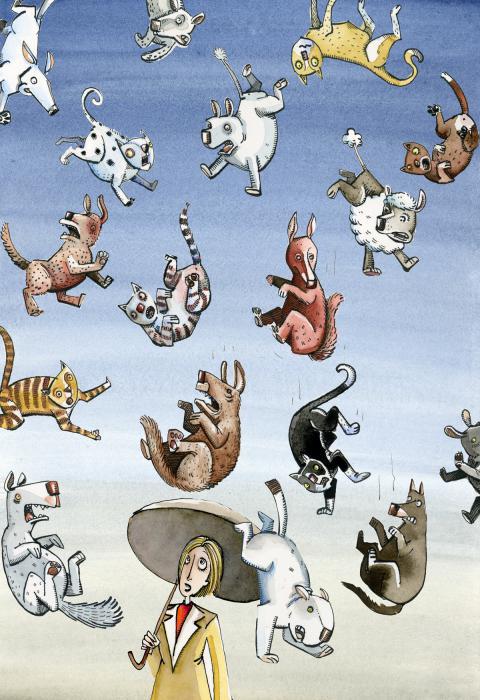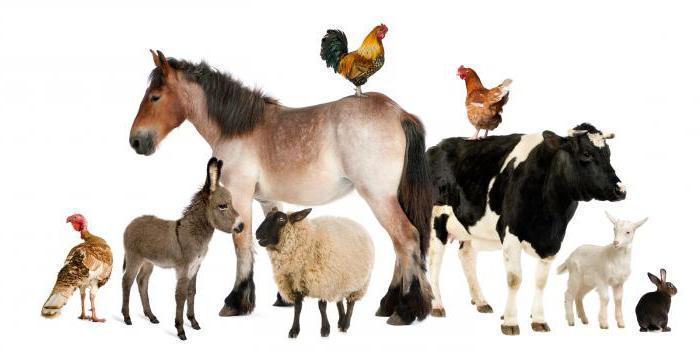Phraseology is a storehouse of wisdom of any nation. Well-established expressions, implying a completely different than it seems at first glance, meaning - this is what makes languages unique. All peoples have sentences, proverbs, just metaphors in which animals appear in some way. Most often, such expressions are associated with the nature of certain animals, with their habits and characteristics. The Russian language is great and powerful, isn't it? What phraseological units about animals exist in it? And are they unique or found in other nations?
Introduction to Phraseology
First you need to understand what phraseological unit is. Linguists understand by this term any established phrase, whether it is a proverb or proverb, an idiom (either whole or partially modified), a catch phrase (from a literary work, oral presentation, and so on). That is, we have every right to expand the issue under consideration from classical expressions to quotes from fables and fairy tales. Thus, phraseological units with animal names turn, without exaggeration, into a whole independent section of phraseology.
Classification Attempts
Man has always been surrounded by his smaller brothers. First wild, then tamed. Over time, noticing the habits of his pets, he compared them with people, with the phenomena surrounding him, and on the basis of these observations phraseological units appeared, which included the names of animals.
Conventionally, they can be divided into many groups:
- About pets (like a cat with a dog).
- About wild animals (hungry like a wolf).
- About the birds (cuckoo mother).
- About insects (annoying like a fly).
- About fish (neither fish nor meat) , etc.
In addition, phraseological units also have a stylistic division: some of them are book (free as a bird), others are more colloquial (like a fish on ice), and others are completely colloquial (to peel like a goat).
Origin
Of course, it is absolutely impossible to consider phraseological units about animals without going deeper into the history of their origin. Some expressions appeared as characteristics of certain animal qualities: foxes are cunning, hence the opinion that a cunning person can be a "fox"; rabbits, in turn, rarely display miracles of courage, which is why it is traditionally said that they are not particularly brave that they are "cowardly like hares."
Another source of phraseology is mythology. Among the ancient Slavs, the cock was considered a symbol of Perun, the god of thunder. Thunderstorm often entailed fires, hence the association of poultry with fire arose, and therefore the expression “let the red rooster” meant “set on fire”.
Could not affect the language and traditions of the peoples. For example, the Jews had a custom once a year to offer a sacrifice to God, which was to atone for all their sins. Traditionally, a goat was entrusted to the altar, for which the glory of the “scapegoat” was entrenched. The custom has long since disappeared, but here a person who is forced to pay for the mistakes and sins of others is still called that way.
Some animals were “rewarded” by phraseologisms for their role in human life. The horse, without which it is impossible to imagine peasant life, has long been immortalized in well-known combinations like “plowed like a horse” and “horses die from work”, which emphasized its exceptional performance.
Writers created idioms about animals in their works on the basis of contrasts: “Elephant and Pug” (large and small), “Wolf and Sheep” (hunter and victim), “Dragonfly and Ant” (loafer and hard worker) - this helped to illustrate most vividly the work, creating for readers an image that is as close as possible to reality.
Phraseologisms in different languages
Phraseology is international - this is immediately understandable. Each nation has its own associations with certain animals. For example, in Great Britain there is an expression equivalent to Russian “pouring from a bucket”, which literally means “pouring with cats and dogs”. The emergence of this phraseology is associated with the fact that before the roofs of houses were covered with such material that when wet became very slippery, so cats walking on the roofs fell down - hence the expression for heavy rain appeared. In German, Russian "blind manners" corresponds to the game "blind cow."

In addition, national specifics can change the “heroes” of idioms: the Russian “Kill two birds with one stone” is equivalent to the German “Slam two flies with one blow”, and “That's where the dog is buried!” equals "That's where the peppercorn in this hare!" "Walking around the bush" in the German version turns into "Walking like a cat around a hot porridge", and "Hungry like a dog" refers to a bear, not a dog. Russian “Sleep like a groundhog” in German sounds “Sleep like a stone”.
There are a lot of such examples. It is important to understand that phraseological units can not be translated literally in any case. Associations with different animals can be different, so it is better to play it safe and use a more neutral expression. Phraseologisms in their speech are used only by those who are completely and completely confident in their knowledge of the language. Therefore, be careful when using phraseological units about animals, and any others, too, in a foreign language.
Phraseologisms in Russian
But, probably, it is time to move on to how animals are displayed in Russian phraseological units. Usually zoomorphisms, and this is the scientific name for this section of phraseology, describe either a person’s characterization or how he performs an action. Of course, in their meaning phraseological units are divided into a huge number of groups.
The most extensive and general - showing the positive and negative qualities of human nature. For example: a gentle calf, a monkey with a grenade, like a bull on a red rag, a stubborn donkey, healthy as a bull, and so on. In any phraseological unit, one can see a shade of attitude towards what this phraseological unit is applied to.
Negative phraseological units
Well, now we will consider in more detail one of the sections that were mentioned above. Negative phraseological units with animals, examples of which are very common, occupy a huge niche in zoomorphisms. Speaking of fatigue, we use the words “jack up”, “spin like a squirrel in a wheel”, “work like an ox” - all this means hard work, workload. Noting human stupidity, we recall: “looking like a ram at a new gate”, “comes like a giraffe”, and when we say that a person has been more coddling than helping, we use the expression “bear service”. In phraseologisms where dirt is mentioned, it is always associated with pigs: “dirty as a pig”, “to blame”. And noting incompetence, we use such zoomorphisms as “sorting out like a pig in oranges”, emphasizing “grace”, remember “a cow on ice” and “an elephant in a china shop”, and if we talk about a person deprived of musical ear, we will certainly say that he "bear in the ear stepped."

Touching upon the theme of excessive appetite and alcohol abuse, for some reason we often return to pigs (“get drunk like a pig”, “until the pig squeals”) and predatory wolves (“wolf appetite”, “eat a bull”). And all these examples are just a small fraction in the vast world of phraseologisms, which we do not stop at, but only warm up and prepare for further study of this issue.
Phraseologisms in fables
How can one study idioms about animals without remembering Krylov’s fables? It is in them that we find a huge number of expressions that are already so firmly entrenched in the language that it is even difficult to believe in their “non-people's” origin. “Swan, cancer and pike” - a reflection of inconsistency, “the cuckoo praises the rooster for praising the cuckoo” - about flatterers, “elephant and pug” - about the struggle between small and large, “monkey labor” - useless work, “crow in peacock feathers ”- about a man who pretends to be another ... All these phrases have been familiar to us since childhood, moreover, they also cause a wave of associations of all their same fables: what is the brightest image of a monkey and glasses!
In fact, the use of stable expressions in the literature is the best way to popularize idioms about animals and their meaning, which is why it is impossible to belittle the merits of writers in this matter.
About Pets
And I would like to finish with such a topic as phraseological units with pets. To describe those smaller brothers of ours, which are always before our eyes, is much simpler than hiding in the forests of wolves, bears and foxes, about the habits of which most people can only know firsthand. The language has long been the expression "like a cat with a dog", "the affectionate body of two mothers sucks", "the old horse will not spoil the furrow", "angry like a dog" - all of them are united by the mention of pets.
It is likely that it is these phraseological units that are closest to the Russian person and reflect their attitude to this or that animal most vividly: in zoomorphisms about horses you always hear respect for hard work, cats are most often shown as independent creatures, pigs are associated with uncleanliness, cows are usually stupid .
PS
Phraseologisms make our speech brighter and more imaginative, demonstrate erudition and rich horizons. That is why it is simply necessary to use similar expressions in speech and, most importantly, to use them correctly.